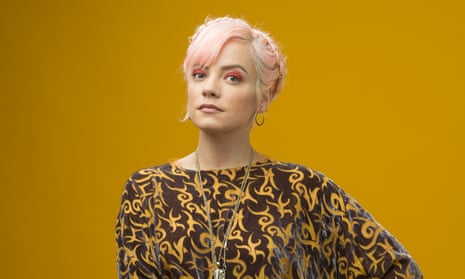Lily Allen has given her first detailed account of a record industry executive sexually assaulting her as she slept, warning that similar abuse is “rife” in the music business.
In a frank interview with Guardian Weekend magazine, the Brit Award winner warns that, even in the wake of the #MeToo movement, industry insiders remain silent about the scale of the problem.
Describing a hierarchical world that “allows and sometimes even endorses toxic behaviour by men towards women”, Allen details an industry which trades in “a potent mix of sex, youth and availability” in her memoir My Thoughts Exactly, published later this month.
The 33-year-old, who has previously discussed in general terms an incident where a powerful industry figure abused her, recounts the details of her experience with a record industry executive who assaulted her after she had fallen asleep in his hotel bed.
She says the man – whom she wanted to name in the book but did not after legal advice from her publisher – settled her in his own hotel room after she had got “smashed” at a party, and left her to sleep it off. Then, Allen alleges, “I woke up at 5am because I could feel someone next to me pressing their naked body against my back. I was naked, too. I could feel someone trying to put their penis inside my vagina and slapping my arse as if I were a stripper in a club. I moved away as quickly as possible and jumped out of the bed, full of alarm … I found my clothes quickly … and ran out of his room and into my own.”
Allen, whose latest album, No Shame, has been nominated for the Mercury prize, says she blamed herself for the assault because she had been drinking. She expresses her frustration that she did not confront or report the man’s behaviour, and carried on working with him, explaining that she felt silenced because he had more power and money than her, and that she feared being labelled “hysterical” and a “difficult woman”.
“I expected him not to take advantage of my weakness,” she writes. “I felt betrayed. I felt shame. I felt anger. I felt confused.”
Allen says she did not report the attack because she saw no point and feared she would be seen as unreliable. “If things went down, I told myself, he’d win.” She adds that at the time she viewed the incident as below a reportable threshold. “What was the crime? Record industry executive didn’t rape me. Was I supposed to report someone trying it on? (Answer: yes.)”
She also reveals that, after returning to London following the alleged assault, she consulted a lawyer and signed an affidavit documenting her recollection of events because “I wanted it on record that I’d been sexually abused by someone I worked with”.
In her interview with the Guardian, Allen says she was later offered a gig promoted by Radio 1 where one of the executive’s artists would have been present, but had to turn it down because she did not want to encounter the man again. She claims she was subsequently “punished by Radio 1, with no airplay for my next single, Trigger Bang – I just couldn’t tell them why I couldn’t take the slot”.
Allen stresses that she is not the only female artist to have such experiences, saying the music industry is “rife with sexual abuse” and suggesting there should be “a proper union for musicians”, and possibly a women-only organisation.
In her book, Allen relates the story of an older A&R (artists and repertoire) man with whom she had consensual sex at the age of 20, when she was looking for a record deal before shooting to fame with her first album Alright, Still. “It was consensual, sure. It’s just that he had all the power and I had none. It’s just that I was young and he wasn’t. It’s just that I was looking for help and he acted as if he was doing me a favour.”
Allen, who has two young daughters, concludes that she hopes the next generation will not be as accepting of predatory behaviour. “Let’s try and teach our daughters to be stronger and more resilient, better at being less grateful, more insistent on being taken seriously, louder at saying no.”
